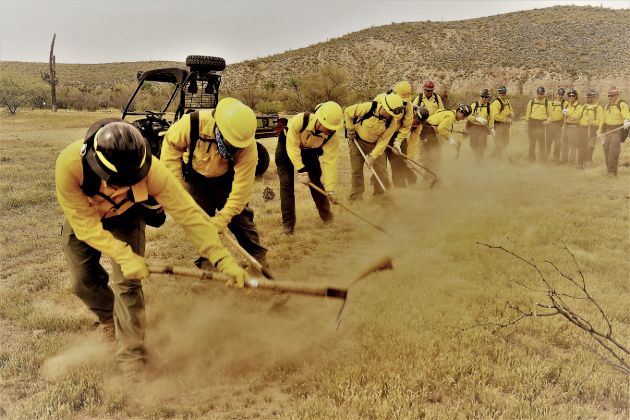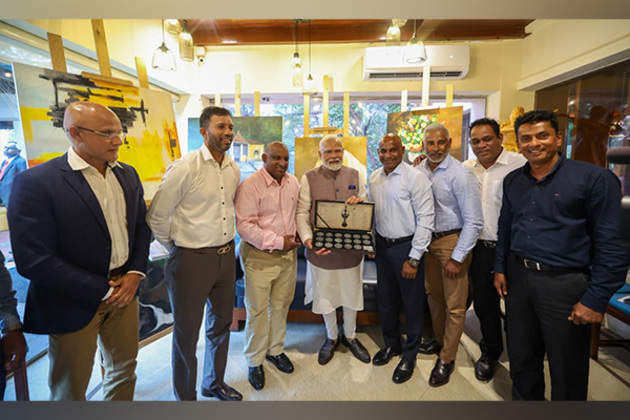The zombie company problem and what it means for our economies - podcast
The Conversation
08 Apr 2021, 16:12 GMT+10

In this episode of The Conversation Weekly, why some economists are worried about a growing army of "zombie companies" with lots of debts - and what this could mean for the shape of our economies. And researchers have found a new way to prevent predators from eating endangered birds and their eggs - via a form of biological, psychological warfare.
With interest rates at record lows, many companies have been able to borrow money at very little cost. This cheap cash, which was flooding financial markets before the pandemic began, led some companies to rack up some big debts. Economists call these "zombie companies" - firms that may struggle to pay the interest on their large debts. It's a problem that's been exacerbated by the pandemic, as revenues dried up in many sectors of the economy.
Governments around the world have stepped in to help companies through the economic crisis caused by COVID-19, but there may be a reckoning ahead. Karl Schmedders, professor of finance at the International Institute for Management Development in Lausanne, Switzerland, explains how zombie companies are born and why the pandemic could have made the problem worse. "It will be a very difficult process to slow down the support of worldwide economies without causing another recession that then is caused by zombie company insolvencies," he tells us. Schmedders says 2021 is likely to see a wave of mergers and acquisitions as a result.
We also hear from Sandy Brian Hager, senior lecturer in international political economy at City, University of London, about why the size of a company has a bearing on how easy it's been able to access all this cheap money. His research shows that smaller US corporations have been historically disadvantaged when it comes to borrowing, which concentrated power in the hands of larger corporations. He's worried we'll see a K-shaped recovery, which will exacerbate the divergence in fortunes between small and large companies even further.
Hager tells us that since the pandemic first hit, larger corporations have seen their profitability restored and financial conditions improve, "whereas smaller corporations are heading in the opposite direction".
In our second story, we hear about a new technique to protect endangered birds whose nests are often attacked by invasive predators. Scientists used fake smells to trick predators such as ferrets and hedgehogs into ignoring the birds' eggs. Catherine Price, postdoctoral researcher in conservation biology at the University of Sydney, who worked on a study testing out the idea in the Mackenzie Basin on New Zealand's South Island, explains what they did - and just how successful it was.
And Luthfi Dzulfikar, associate editor at The Conversation in Indonesia, gives us his recommended reads.
The Conversation Weekly is produced by Mend Mariwany and Gemma Ware, with sound design by Eloise Stevens. Our theme music is by Neeta Sarl. You can find us on Twitter @TC_Audio, on Instagram at theconversationdotcom. or via email on [email protected]. You can also sign up to The Conversation's free daily email here.
A transcript of this episode will be available shortly.
News clips in this episode are from ABC News, CNBC, CNBC TV, DW News, Arirang, ECB News, CNA, eNCA and Bloomberg News.
You can listen to The Conversation Weekly via any of the apps listed above, our RSS feed, or find out how else to listen here.
Authors: Daniel Merino - Assistant Editor: Science, Health, Environment; Co-Host: The Conversation Weekly Podcast | Gemma Ware - Editor and Co-Host, The Conversation Weekly Podcast | Catherine Price - Postdoctoral Researcher in Conservation Biology, University of Sydney | Karl Schmedders - Professor of Finance, International Institute for Management Development (IMD) | Sandy Brian Hager - Senior Lecturer in International Political Economy, City, University of London 
 Share
Share
 Tweet
Tweet
 Share
Share
 Flip
Flip
 Email
Email
Watch latest videos
Subscribe and Follow
Get a daily dose of Australian Herald news through our daily email, its complimentary and keeps you fully up to date with world and business news as well.
News RELEASES
Publish news of your business, community or sports group, personnel appointments, major event and more by submitting a news release to Australian Herald.
More InformationInternational
SectionPre-tariff inventory gives car dealers a competitive edge
LONDON/DETROIT: As U.S. automakers brace for the financial impact of new 25 percent tariffs, car dealers with inventory built before...
Boeing CEO to face lawmakers amid safety concerns and public scrutiny
WASHINGTON, D.C.: Boeing's top executive faced lawmakers on April 2 as the company worked to repair its reputation following a string...
Over 1,000 firefighters train at Arizona Wildfire Academy
PRESCOTT, Arizona: More than 1,000 firefighters and fire managers recently trained at the annual wildfire academy in Arizona. They...
Ex-NYC fire chief sentenced to nearly 2 years for bribery scheme
NEW YORK CITY, New York: A former New York City Fire Department chief has been sentenced to nearly two years in federal prison for...
Rail giant wants help to pay Ohio-Pennsylvania derailment settlement
EAST PALESTINE, Ohio: Norfolk Southern wants two other companies to help pay for the $600 million settlement it agreed to after a major...
Wildfire in eastern Sierra burns 1,000 acres, triggers evacuations
BISHOP, California: A fast-growing wildfire in California's Eastern Sierra region has burned 1,000 acres and forced people to leave...
Sydney
SectionSurvey shows ALP would win Federal election if held now
MELBOURNE, Victoria - If a federal election were held today, the Australian Labor Party (ALP) would be re-elected with an increased...
PM Modi meets 1996 World Cup-winning Sri Lankan cricket legends in Colombo
Colombo [Sri Lanka], April 5 (ANI): Prime Minister Narendra Modi interacted with Sri Lanka's cricket legends who won the 1996 Cricket...
(SP)PHILIPPINES-LAGUNA PROVINCE-BEACH VOLLEYBALL-TOUR-2ND NUVALI OPEN
(250405) -- LAGUNA PROVINCE, April 5, 2025 (Xinhua) -- Women's gold medalists Stefanie Fejes (3rd L) and Jasmine Fleming (3rd R) of...
Austin Trout wins World Welterweight Championship in extra round thriller at BKFC 71 Dubai
Dubai [UAE], April 5 (ANI): The Dubai Duty Free Tennis Stadium played host to an electrifying night of bare-knuckle action on April...
Pranavi is T-4 but has five holes to play, Diksha is T-21 in Johannesburg
Johannesburg [South Africa], April 4 (ANI): Pranavi Urs was in fine form before the first round was suspended due to a flooded course...
BBL: Mitchell Marsh re-signs for Perth Scorchers, set to stay for next three years
Perth [Australia], April 4 (ANI): Mitchell Marsh has re-signed with the Perth Scorchers for the next three years, keeping him en route...













